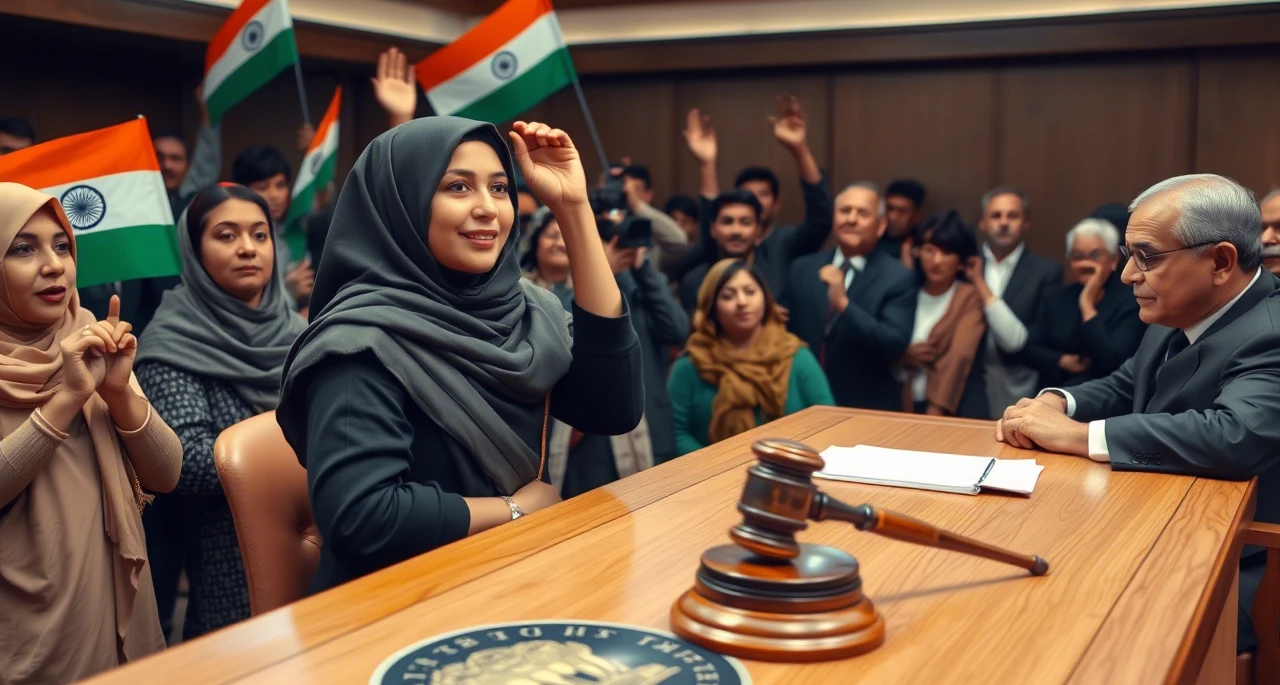Picture this: a woman, kicked out of her home with two kids, fighting for years to get financial support from her husband. She’s tangled in a web of family disputes, dowry demands, and rulings from a so-called “Sharia Court” that turns out to mean nothing in the eyes of the law. Sounds like a messy drama, right? Well, it’s real life, and the Supreme Court of India just stepped in to clear the air. In a ruling that’s making waves, the court declared that Sharia Courts, Kazi Courts, or any similar setups have zero legal power in India. Oh, and they ordered the husband to pay up—Rs 4,000 a month for his wife, plus support for their kids. Let’s unpack why this matters.
The Case That Sparked the Ruling
This story starts with a woman from Bhopal, who we’ll keep anonymous because her fight’s bigger than just her name. Back in 2002, she entered her second marriage with a man in the Border Security Force, also on his second go at matrimony. They had a daughter and a son, but things went south fast. She says he beat her, demanded dowry, and eventually threw her and the kids out in 2008. Desperate, she turned to the Family Court in Jhansi, asking for Rs 5,000 a month for herself and Rs 1,000 for each child to survive.
Meanwhile, her husband tried to divorce her through a “Court of Kazi” in Bhopal—twice, in fact. The first attempt in 2005 fizzled out after a shaky compromise where they agreed to “try living together.” The second, in 2008, went nowhere legally. But when the Family Court looked at her maintenance claim, they sided with the husband, saying she was the problem—too difficult, too stubborn—and left her with nothing. Her kids got a small amount (Rs 1,500 and Rs 1,000 a month), but she was left high and dry. The Allahabad High Court backed this up in 2018, claiming she didn’t have a good enough reason to live separately.
Enter the Supreme Court, with Justices Sudhanshu Dhulia and Ahsanuddin Amanullah taking a hard look at the case. Their verdict, delivered on February 4, 2025, and made public on April 22, flipped the script. They called the Family Court’s reasoning “ex-facie unsustainable”—fancy legal talk for “totally wrong.” They pointed out that the 2005 compromise was just a vague promise to get along, not proof she was at fault. And assuming a second marriage means no dowry demands? That’s a leap the court wasn’t buying. They ordered the husband to pay her Rs 4,000 a month, backdated to when she first filed her claim, and ensured the kids get support until they’re adults.
Sharia and Kazi Courts: No Legal Muscle
Now, here’s the part that’s got everyone talking. The Supreme Court didn’t just rule on maintenance—they dropped a bombshell about Sharia Courts, Kazi Courts, and similar bodies. In plain English: these courts have no legal standing in India. Zip. Nada. Their rulings, whether called fatwas or decisions, aren’t binding on anyone. The court leaned on a 2014 case, Vishwa Lochan Madan v Union of India, which said fatwas have no place in India’s constitutional system. Justice Amanullah put it bluntly: these bodies, no matter what they’re called, can’t enforce anything. Their decisions only hold water if the people involved agree to follow them and it doesn’t break any laws. Even then, it’s just between those folks—not a rule for anyone else.
This is huge because, for years, some communities have turned to Kazi or Sharia Courts for quick resolutions on things like divorce or disputes. But these setups operate outside India’s legal framework, often leaving people—especially women—in the lurch when their “rulings” don’t hold up. The Supreme Court’s message is clear: if you want justice that sticks, stick to the legal system.
Why This Ruling Hits Home
So, why should you care about a court case in Bhopal? Because this isn’t just about one woman’s fight—it’s about fairness, clarity, and protecting vulnerable people. For too long, unofficial courts have muddied the waters, issuing decisions that sound official but collapse under scrutiny. Women, in particular, often get the short end of the stick, left without support or rights because a “Kazi” said so. This ruling cuts through that noise, reinforcing that India’s legal system is the final word.
It’s also a win for anyone who’s ever felt trapped in a bad marriage. The court didn’t just hand this woman maintenance; they challenged the idea that she was to blame for leaving a toxic situation. By calling out shaky assumptions—like dowry demands not happening in second marriages—they’re pushing for a more honest look at domestic disputes. And let’s be real: Rs 4,000 a month isn’t a fortune, but for a single mom with two kids, it’s a lifeline.
What’s Next?
This ruling sets a precedent, and it’s likely to ripple through similar cases. Lawyers and activists are probably already digging into how it can help others stuck in legal limbo because of unofficial court decisions. It also puts pressure on community leaders to align with the law rather than leaning on traditional setups that don’t hold up. For the woman at the center of this case, it’s a hard-won victory after years of battling courts and stigma.
The bigger picture? This is a step toward a clearer, fairer system where no one’s rights get lost in the shuffle of unofficial rulings. So, next time you hear about a “Sharia Court” or “Kazi Court” making waves, remember: the Supreme Court’s got the final say, and they’re not messing around.





